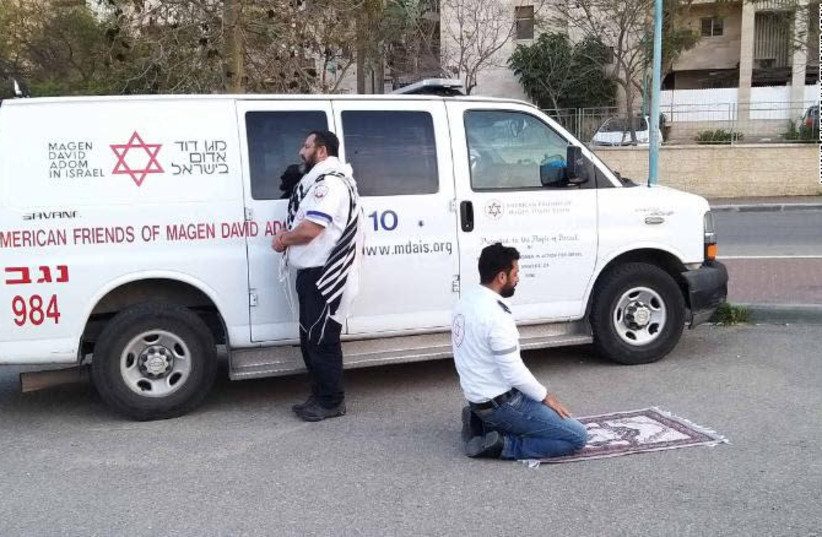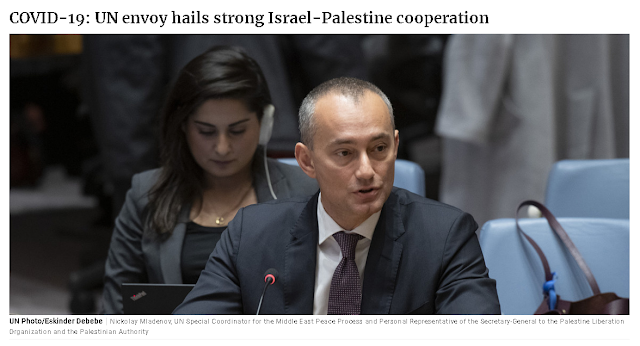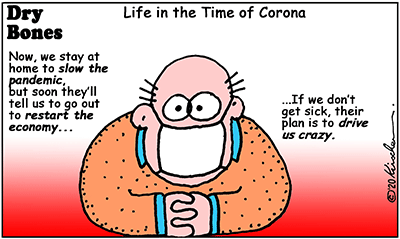Will the coronavirus outbreak change the world forever?
The coronavirus global pandemic will have a lasting impact upon interpersonal, national, and inter-state dynamics long after it subsides.Could the coronavirus bring peace among Israelis and Palestinians?
The first area that has, and will continue to be shaken is the interpersonal web of relations among people. After the pandemic dies down, many will experience conflicting drives: After weeks or more in isolation, they will be hungry for company, for meeting and socializing. But they will also be keenly aware of the risk of close contact. A longing for the contact of others will clash with the wariness of being infected. It will be a time of contradictions.
The coming adjustment period may serve as a basis for hope that relationships, from people to states, will be more cordial and based more upon common understandings as a result of the shared, global trauma.
But the most dramatically affected sphere is the economy, of course. So many have lost their sources of income and customer base; particularly small business owners. The recovery period will be lengthy and painful.
Customers and clients of local businesses will be disappointed to discover that places familiar to them will have shuttered. For the businesses that do survive, a general worldwide restart will be required.
Internationally, many issues that appeared pressing prior to the pandemic will likely recede in prominence once the world begins its recovery.
Israel and annexation
In the Middle East, for example, the issue of Israeli annexation of West Bank territory, which was a highly divisive topic prior to the virus's spread, is now destined to take a back seat. The State of Israel will not be in a position to deal with the annexation issue in the coming six months. Every government ministry will be fully engaged with implementing a coronavirus exit strategy.
All non-coronavirus issues will be pushed aside, including former diplomatic hot topics that occupied the minds and the agendas of politicians and political parties busy in the pre-COVID-19 era.
A change can also be expected in the conduct between governments. The common global fate, an outgrowth of the pandemic, will create a new sense of worldwide identification; not only because of a shared experience, but also because of the mutual assistance that will be required. The experience of tragedies that have rocked countries such as the US, Spain and Italy may well change how international relations are conducted.
In a region infamous for its sectarian tension, the coronavirus has catalyzed an unlikely alliance between the Israeli and Palestinian governments. Last Tuesday, the Palestine branch of the UN Office for the Coordination of Humanitarian Affairs praised “unprecedented cooperation on efforts aimed at containing the epidemic” between Israeli and Palestinian authorities in their preliminary emergency situation report. The respective governments of the Jewish State and Palestinian territories, in a seemingly eternal state of conflict, find themselves united for the first time as they battle against a common enemy.
Despite perpetual tension, the economies of Israel and Palestine are closely intertwined. Both rely heavily on international tourism to their world-famous historic and religious sites. 2019 was a record-breaking year for both economies' tourism industries; Israel welcomed 4.55 million tourists, the highest number to date, adding 23 billion shekels to the economy, while Palestine also saw record-breaking numbers, surpassing 3 million visitors. Millions of tourists travel to the countries’ holy sites each year, making a pilgrimage to Israel’s Jerusalem and Palestine’s Bethlehem, where Jesus is said to have been born. Just a few kilometers apart, these two cities have been the hardest hit in the region during the pandemic. Numbers of confirmed cases in Jerusalem are over 1,700, while Bethlehem has over 150, with much higher numbers of unconfirmed cases feared by both governments.
“Little is known about the collaboration of Israeli and Palestinian tour operators,” says Yossi Orbach, CEO of Israel’s leading tour operator, Tourist Israel, “we stay in close touch with our Palestinian partners and support them during these hard times. This crisis has many Israelis realizing now that we have much more similarities with Palestinians than differences.” Tourist Israel operates a daily Jerusalem, Dead Sea, & Bethlehem tour and an annual Christmas Eve in Bethlehem tour in close collaboration with a local Palestinian operator. Tourist Israel’s founder, Ben Julius, is proud to welcome tourists to experience the Israel and Palestine that the media doesn’t highlight. He points to the viral photograph of two Magen David Adom volunteers, one Jewish and one Muslim, taking a break from saving lives to pray together. “This photo is so moving and has rightfully attracted a lot of attention, but for many people, this is life in Israel. There is a lot of coexistence and interconnectedness that the rest of the world doesn’t see. The tourism industry has played a vital role in promoting collaboration between Israelis and Palestinians, and can serve as an example for other sectors as well”.
Economic cooperations are vital in other sectors as well: approximately 120,000 Palestinian laborers work in Israel in the fields of construction, agriculture and services. The travel restrictions imposed to fight the coronavirus have forced Israeli and Palestinian government officials to work together to find solutions aimed at reducing the risk of cross-border transmissions while trying to minimize disrupting the jobs and labor that both economies rely on. To achieve this, Israel approved for the first time ever for tens of thousands of Palestinian day workers to stay overnight within its borders and even assists in arranging housing solutions for them.
Latma 2020 Episode 4 for Passover under Corona clouds - Let this virus go





































